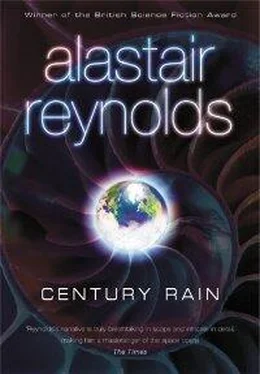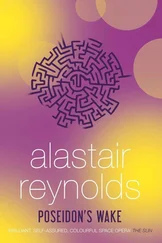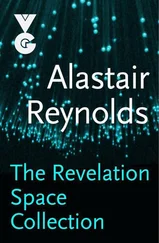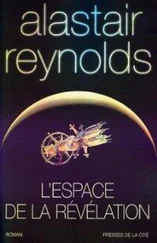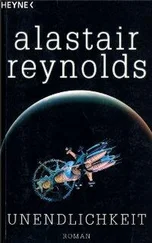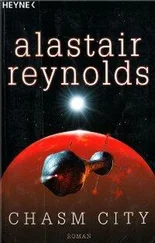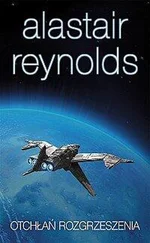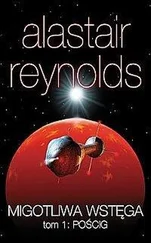It was a picture of Chatelier. Except—now that he thought about it—the picture looked a lot like someone else he’d met recently. Not an exact likeness, but enough to raise the hackles of recognition. Not close enough to be the same man. But certainly close enough for them to be brothers.
Maybe it was just his imagination.
Maybe it wasn’t.
He folded the poster and shoved it into his pocket. There was a telephone number at the foot of it for anyone who wanted to support Chatelier’s political campaign. Floyd thought that maybe tomorrow he might think about paying Chatelier’s people a visit. Just to ask a few questions. Just to make a nuisance of himself.
He carried on into the city, counting down the street numbers, looking for some essential landmark. Somewhere in the distance he heard a maritime foghorn blare into the night. A telephone kiosk loomed out of the void like a lighthouse. He stepped inside and closed the door, tried the money-return hatch and pulled out a single coin. His lucky day. Floyd fed the telephone and dialled a number in Montparnasse that he knew by memory.
Sophie answered.
“This is Floyd,” he said. “I hope it’s not too late. Is Greta there?”
“Just a moment.”
“Wait,” he said, before she stepped away to find Greta. “Is Marguerite still…?”
“She’s still alive, yes.”
“Thank you.”
“I’ll fetch Greta. She’s upstairs.”
He waited, drumming his fingers on the glass door of the telephone box. They hadn’t parted on the best of terms. How was she going to take his coming back now, after all the time he’d been away?
Someone picked up the receiver.
“Floyd?”
“Greta?”
“It’s me. Where are you?”
“Somewhere in Paris. Not exactly sure where. I’m trying to find my way back to rue du Dragon.”
“We were worried, Floyd. Where have you been? We’ve had people out looking for you all day.”
She sounded concerned and confused, rather than angry. “I’ve been away,” he said, wondering what she meant by “all day.” He’d been away longer than that, surely? “With Auger.”
“Where is she now?”
“Gone.”
“Gone as in…?”
“Gone as in gone. I don’t think I’ll be seeing her again.”
She seemed to go and then come back. When she returned, something had changed in her voice. Some crack of forgiveness had opened up. “I’m sorry, Floyd.”
“It’s all right.” But it wasn’t all right. Not at all.
“Floyd, where are you? I can send a taxi—”
“It’s OK. I need the walk. Can I come around tomorrow?”
“Yes, of course. I’ll be here all morning.”
“I’ll be there first thing. I’d like to see Marguerite. I have something for her.”
“She still thinks you’re going to show up with strawberries,” Greta said sadly.
“I’ll see you in the morning.”
“Floyd… before you hang up. I’m still serious about America. You’ve had time now, haven’t you? Time to think. And now that you don’t have any other distractions—”
“You’re right,” he said. “I’ve had time to think. And I think you’re right. America will be good for you.”
“Does that mean you’ve come to a decision?”
“Kind of,” he said.
He put down the receiver and stepped out of the kiosk. Suddenly, the fog cleared a little, enough to give him a better view of the street on which he stood. Some glimmer of recognition teased his memory. He knew where he was, more or less. He had been heading in the right direction all along.
Floyd reached into his pocket. The bag of strawberries was still there, like some token from a dream that had no business existing in the real world. The little vial of UR was there as well.
He thought of Greta getting on that seaplane to America, turning a new corner in her life. Something brighter and more wide open than he could ever offer her in Paris. Something brighter and more wide open than he could offer her if he went to America with her, too. And then he thought of her staying here, out of love, nursing Marguerite out of her illness, while that other life slipped further and further from her grasp.
He took out the vial and dropped it on to the cobbles.
He crunched it underfoot and lost himself in the fog.
ACKNOWLEDGEMENTS AND FURTHER READING
A number of books proved invaluable during the writing of this novel. In searching for a plausible “counterfactual” scenario for the events of May 1940, I am indebted to Julian Jackson’s excellent The Fall of France (Oxford University Press, 2003) for suggesting that the Ardennes offensive could so easily have failed had the Allies appreciated the vulnerability of the advancing forces and taken action at the decisive time.
For general information on Paris, Alistair Horne’s Seven Ages of Paris (Macmillan, 2002) proved very useful, as did Edmund White’s The Flâneur (Bloomsbury, 2001). The versions of the city presented in this book, however, are only loosely congruent with the real one. The Maigret novels of George Simenon also provided an obvious imaginative stimulus. Respect, Jules.
The search for gravitational radiation from cosmic sources continues to this day, with expectations of success at any time. For an outstanding and highly readable account of this fascinating and contentious story, from the late Joseph Weber’s pioneering work in the 1960s (mentioned by Maurya Skellsgard) to the latest ultra-sensitive schemes—such as the Leiden-based GRAIL programme, which is currently taking place only a few miles from where these words are being written—I recommend Einstein’s Unfinished Symphony by Marcia Bartusiak (National Academies Press, 2000). One of Weber’s students, incidentally, was the late Robert Forward, who went on to make a name for himself as a science fiction writer, and whose books contain much mind-stretching speculation about gravity and exotic physics.
The artificially engineered amusica virus is speculative, but the condition “amusica” is, unfortunately, a real one—the musical analogue to the language-impairing condition of aphasia. Subjects with amusica typically lose the ability both to make and appreciate music. I read about this condition in Harold L. Klawans’ fascinating book Toscanini’s Fumble (Headline, 1990). Like the case studies presented by Oliver Sacks, Klawans’ medical stories often seem more science fictional than any real SF, and are as addictive as any collection of short stories.
Simon Singh’s very readable The Code Book (Fourth Estate, 2000) provided much useful background on the history and workings of the Enigma machine.
For general information on the music of Floyd’s era (which isn’t quite the same as the music of our 1950s) I relied on Jazz: The Ultimate Guide by Ronald Atkins (Carlton, 1996), and the splendid five-CD supplement to Ken Burns’ Jazz: The Story of America’s Music (Sony, 2000). The Gitanes series of “Jazz in Paris” CDs also proved very useful.
For useful discussions, and general help with stupid questions, I am indebted to Tony Ballantyne, Barbara Bella, Bernd Hendel, Peter Hollo and Christopher Priest. Any mistakes, needless to say, are entirely my responsibility, not theirs.
